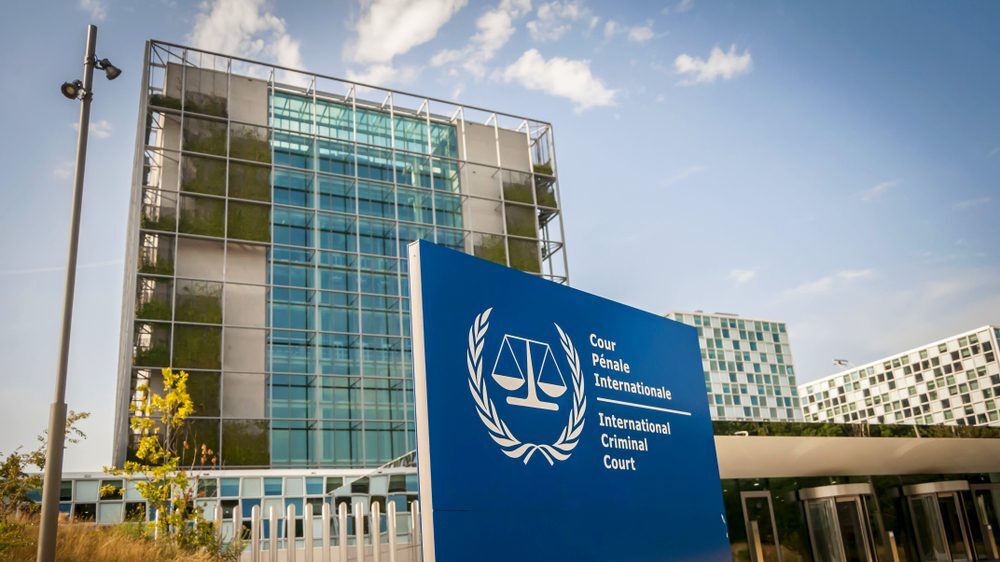
International Criminal Court (ICC) headquarters in The Hague, the Netherlands.
Seven partner states of the European Agency for Criminal Justice Cooperation (Eurojust) have signed an agreement to create an international tribunal for the prosecution of war crimes in Ukraine at the organization’s conference held in Lviv, Ukraine, March 3-5.
📢 More important developments at the United for Justice Conference #U4J this weekend in Lviv, #Ukraine:
— Eurojust (@Eurojust) March 5, 2023
🔹 Amendment of the #JointInvestigationTeam agreement to reflect the future role of the International Centre for the Prosecution of the Crime of Aggression (#ICPA)
(1/3)🧵👇 pic.twitter.com/zp1unnPAf3
Calls for setting up an official tribunal to prosecute Russian war crimes have grown louder throughout Europe as we marked the one-year anniversary of the invasion. The push for a new institution began following reports of large-scale Russian atrocities against Ukrainian civilians in Bucha and Irpin, which prompted the EU to coordinate the international investigation into the apparent war crimes.
Months of work eventually led to the establishment of the so-called Joint Investigation Team (JIT) within Eurojust, consisting of Ukraine, Lithuania, Poland, Estonia, Latvia, Slovakia, and Romania, as well as the International Criminal Court. Later, the Eurojust regulation was amended in order to give JIT the legal instruments required to securely collect, preserve, and analyze evidence, and a joint judicial database was subsequently launched in February 2023.
But JIT’s competence only goes as far as investigating the atrocities; the prosecution of war crimes usually falls under the jurisdiction of the International Criminal Court (ICC) in The Hague. And there was the problem: Russia is not part of the ICC treaty (since its withdrawal in 2016); therefore the body cannot exercise its competence with regard to Russian war crimes.
More recently, however, the joint effort reached yet another milestone, as the initial JIT partner countries finally agreed to create a separate, dedicated tribunal in The Hague to make up for this apparent shortcoming of the ICC. Thus, the International Center for the Prosecution of the Crime of Aggression (ICPA) was born, out of an amendment to the JIT agreement signed at the United for Justice conference in Lviv during the first week of March.
European Commission chief Ursula von der Leyen also put out an official statement to welcome the establishment of the ICPA, describing it as “the first step” toward finally being able to prosecute Russian perpetrators. “Torture, ill-treatment, sexual violence, and summary executions are known to have been committed by Russian forces. Not even children are being spared,” von der Leyen’s statement reads. “The European Union will continue to work, with our partners, to ensure that Russia pays.”
Russia must pay for its crimes.
— Ursula von der Leyen (@vonderleyen) March 4, 2023
Proud of the agreement to set up the International Centre for Prosecution of the Crime of Aggression in The Hague.
A key step towards prosecuting the crime of aggression.
We must do everything in our power to bring the perpetrators to justice. pic.twitter.com/fk0VGZhAL7
Naturally, Russia will not accept the jurisdiction of ICPA either, but nor does the EU or the organization’s partner countries expect it to. Instead, they are hoping to win the support of the UN and legitimize the body through the consensus of the wider international community. For the moment, ICPA will carry on the work of JIT in preserving evidence and preparing the prosecution for future trials, whether national or international.
For its own part, Kyiv supports every joint push to eventually bring perpetrators to justice, but it would also prefer doing things its own way. According to Ihor Ponochovny, the Ukrainian Head of the Prosecutor’s Office for Crimea, Ukraine should “not rely on someone, but independently establish, document and pronounce sentences on war criminals, even if in absentia for the time being.” Nonetheless, he welcomes developments in The Hague too, of what he calls “following the example of the Nuremberg Tribunal,” adding, that the prospects of creating a special tribunal with full competence to prosecute Russians “are becoming more real” every day.
“How it will be […] time will tell,” Ponochovny said. “But we must have legal grounds for carrying out such activities. Because to go to Russia, pull Putin out of the bunker, bring here and condemn—it is now impossible.”
